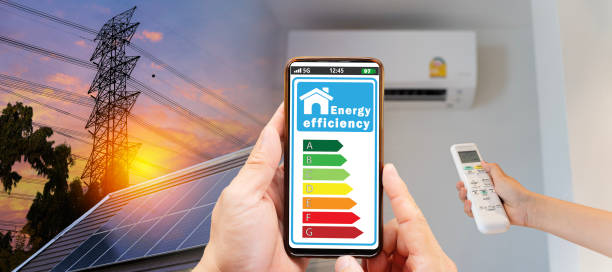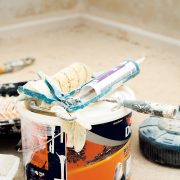When the pandemic began in 2020, millions of Americans were stuck in their homes for weeks and months on end. This caused many to re-evaluate their living situations since they were spending so much time there. It led to a massive increase in the amount of DIY home improvement projects that were occurring across the country.
Things were no different in Denver, CO. Homeowners decided that changes were needed and started to tackle the improvements themselves. Others preferred a professional touch with their projects in the form of hired contractors.
When you invest in your home, the functionality of the space can be improved. As a result, the value of the property also goes up. One of your objectives for home improvements could be to create a more energy-efficient home. Let’s talk about some improvements you can make to lower your utility bills and reduce overall resource consumption.
Updating Old Windows
Windows are a potential source of heat loss. In summer, the heat outside can easily seep into the interiors through old windows, while heat can slip out in the winter. Often, the reason this climate control feature is failing is due to age. To reduce this heat transfer so that your HVAC systems do not have to work as hard, it may be time to replace those old windows with more efficient models. If you like the aesthetics of these pieces as they are, you could instead restore and retrofit the old windows to make them more efficient. Either way, the result is better insulation so that your utilities do not have to work as hard to warm or cool the home.
Have Insulation Added
Depending on how your home was built, there could be spaces that are poorly insulated. Often, these areas are harder to get into, which is why the addition of insulation was neglected or ignored. Attics and crawl spaces are common spaces where insulation may be inadequate or even non-existent, causing a lot of temperature control issues for the rest of the home. It may be necessary to get in touch with a contractor that specializes in insulation. They can ensure that the rooms that are suffering from poor insulation can be rectified so that HVAC systems have a lighter load in keeping the home comfortable.
Replace Old Siding
One of the most significant aspects of the home’s exterior is the siding. It covers the majority of the structure and plays a massive role in temperature control as well as protection from water and wind damage. The older the siding gets, the more likely it is to suffer from wear and tear, compromising its effectiveness. Plus, some older siding materials are very poor in terms of insulation. Replacing your siding with a newer exterior made from efficient materials can better protect your home and lower your utility bills. Just contact one of the many Denver siding contractors to get a professional quote and take the first step toward new siding. As a bonus, new siding can dramatically improve curb appeal as well.
Install Low-Flow Fixtures
Features in your home that can use a lot of water include faucets, showerheads, and toilets. Many older models of these fixtures have high flow rates, resulting in a larger volume of water being used whenever you turn them on. Often, this excess water is not necessary for the function of the fixture, such as flushing human waste, washing dishes, or taking a shower. Newer fixtures typically have low-flow elements that cut down on the water usage in your home while still adequately performing the function of these features. If you replace a couple of older fixtures with their upgraded counterparts, you can cut down significantly on your water use, and therefore, the cost of the water bill.
Use Off-Grid Power
Electricity is a crucial resource for Denver homes. It helps run everything from lights to the entertainment selection to the oven. All these electricity-consuming machines can add up to a significant electric bill. If you can invest in some alternative energy sources that do not rely on the grid, you can reduce your power bill each month. Solar panels on the roof are a popular option and often come with tax credit incentives, though the initial investment will be substantial. Another option is to embrace wind power with a personal wind turbine on your property. Alternative energy sources can eventually pay for themselves if you live in the home long enough, but they also reduce your environmental impact and reliance on the grid for power.
Weigh the Costs and Benefits of Each Efficiency Improvement
Pursuing energy efficiency is typically the result of wanting to save money. It could also be due to your desire to have a smaller environmental impact. Either way, the improvements mentioned above can all make your Denver home more efficient, saving you money and lowering your impact on the environment. Make sure you research the costs of these projects and weigh those against the benefits you will experience to decide if they are right for your home.




















